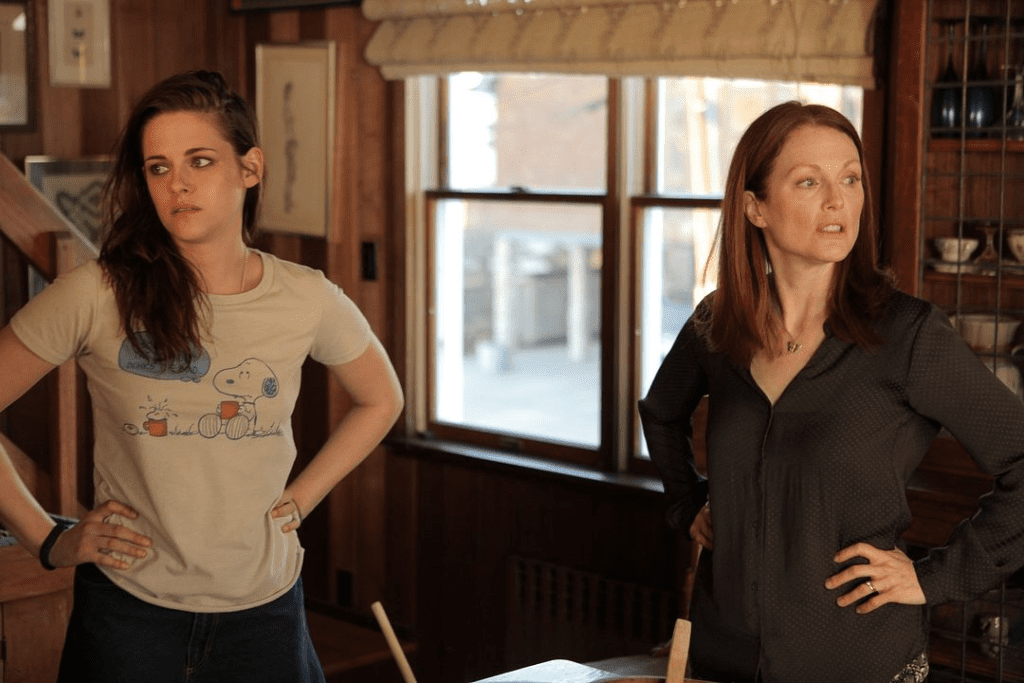
Julianne Moore has built a career defined by unparalleled talent and a knack for bringing depth to her characters. While her filmography is vast and diverse, her role in Still Alice (2014) is often regarded as one of her crowning achievements. Moore’s portrayal of Alice Howland, a linguistics professor diagnosed with early-onset Alzheimer’s disease, not only won her an Academy Award for Best Actress but also etched her name in the annals of cinema history. In this heart-wrenching drama, Moore delivers a performance so compelling and genuine that it leaves an indelible mark on every viewer.
At its core, Still Alice is a poignant exploration of memory, identity, and resilience. Alice Howland is a highly respected professor at Columbia University, enjoying a successful career and a fulfilling family life. However, her world begins to unravel when she starts experiencing lapses in memory and is subsequently diagnosed with early-onset Alzheimer’s disease.
The film masterfully portrays Alice’s struggle as she grapples with the devastating reality of her diagnosis. Her once sharp mind—a tool that defined her identity—is now betraying her. The story doesn’t merely focus on the medical aspects of the condition; it dives deep into the emotional, psychological, and relational impacts it has on Alice and her loved ones.
Julianne Moore’s ability to bring Alice’s journey to life is the beating heart of the film. She draws the audience into Alice’s world, making her struggles and triumphs feel deeply personal.
Moore’s portrayal of Alice Howland is a masterclass in acting. She doesn’t rely on melodrama or exaggeration to convey the devastating effects of Alzheimer’s. Instead, she uses subtle facial expressions, deliberate speech, and body language to communicate the gradual deterioration of Alice’s cognitive abilities.
In the early scenes, we see Alice as a confident and accomplished woman, delivering lectures with authority and engaging in lively discussions. As the disease progresses, Moore gradually introduces small changes—hesitations in speech, fleeting moments of confusion—that eventually build to more pronounced struggles. The transformation is both heartbreaking and profoundly human.
One particularly memorable scene involves Alice giving a speech at an Alzheimer’s conference. Moore delivers this moment with a delicate balance of vulnerability and strength, capturing Alice’s determination to make her voice heard while she still can. It’s a powerful reminder of the resilience of the human spirit in the face of adversity.

Still Alice is not just a story about one woman’s battle with Alzheimer’s; it’s also about the ripple effects the disease has on her family and relationships. Moore’s interactions with the supporting cast—Alec Baldwin as her husband John, and Kristen Stewart, Kate Bosworth, and Hunter Parrish as her children—bring added layers of emotion to the narrative.
As Alice’s condition worsens, we see how her family members react differently to the challenges. John struggles to reconcile his love for Alice with the demands of his career, while Lydia, her youngest daughter, grows closer to her mother in unexpected ways. Moore’s ability to convey Alice’s pain, frustration, and occasional moments of clarity makes these relationships feel authentic and deeply relatable.
The power of Still Alice lies in its ability to humanize a condition that is often misunderstood or stigmatized. Alzheimer’s is not just about memory loss; it’s about losing the very essence of who you are. Through Alice’s journey, the film sheds light on the emotional toll the disease takes, not only on those diagnosed but also on their families and caregivers.

Julianne Moore’s performance was instrumental in making this message resonate. She approached the role with sensitivity and respect, ensuring that Alice’s story was told with honesty and dignity. By doing so, she brought much-needed awareness to the challenges faced by individuals living with Alzheimer’s and their loved ones.
Moore’s portrayal of Alice Howland received universal acclaim, earning her a slew of accolades, including the Academy Award, Golden Globe, and BAFTA for Best Actress. These awards were a testament to the depth and authenticity she brought to the role.
Beyond the awards, Still Alice sparked important conversations about Alzheimer’s disease and the need for better research, support, and resources. Moore’s performance played a key role in this, drawing attention to the human side of a condition that affects millions worldwide.

Julianne Moore’s work in Still Alice represents a pinnacle in a career filled with outstanding performances. Her ability to fully embody Alice Howland, to make the audience feel every moment of her struggle and triumph, is a testament to her skill and dedication as an actor.
Even years after its release, Still Alice continues to resonate with viewers. It serves as a poignant reminder of the fragility of memory and the strength of the human spirit. Moore’s performance ensures that Alice’s story will not be forgotten, offering a voice to those living with Alzheimer’s and inspiring empathy and understanding in all who watch the film.

Julianne Moore’s portrayal of Alice Howland in Still Alice is more than just an extraordinary performance—it’s a profound contribution to cinema and society. Through her nuanced and deeply empathetic portrayal, Moore gave a face to a condition that often goes unnoticed and unspoken. She made Alice’s story one that could resonate with anyone, turning a deeply personal journey into a universal experience.
As we reflect on her work in Still Alice, it’s clear that Julianne Moore has solidified her place as one of the greatest actors of our time. Her performance is a timeless reminder of the power of storytelling to connect, inspire, and illuminate the human experience.


